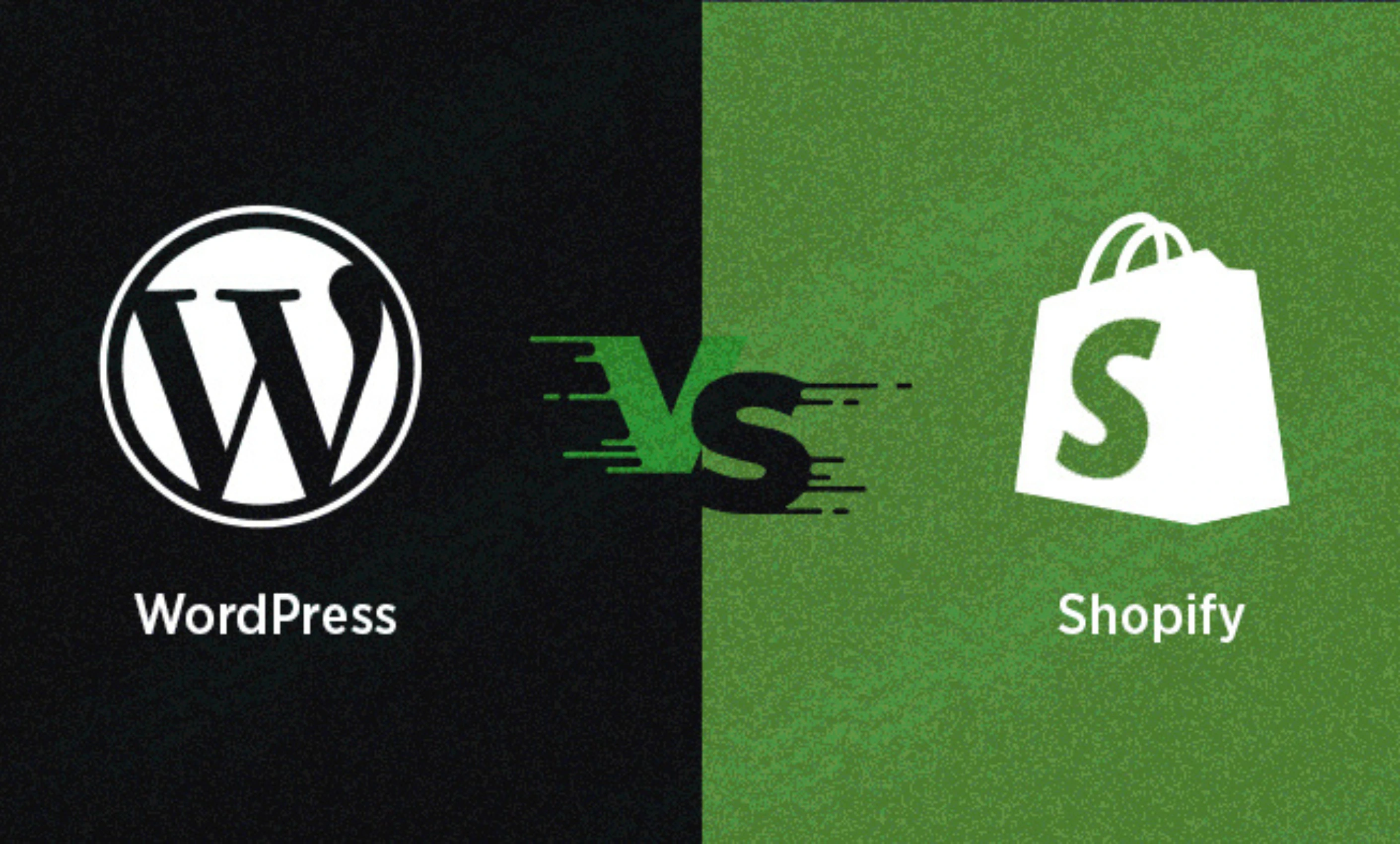

Starting an online store can be a thrilling adventure, but choosing the right platform to build your store is a critical decision that can shape your business’s future. Among the popular choices, WordPress and Shopify stand out as top contenders. But which one is right for you? In this blog post, we’ll compare WordPress and Shopify in detail, helping you decide the best platform for your needs. We’ll explore their strengths, weaknesses, and ideal use cases to guide you in making an informed decision.
WordPress is a versatile and powerful content management system (CMS) that powers over 40% of all websites on the internet. Initially designed as a blogging platform, WordPress has evolved into a robust CMS capable of handling various types of websites, including eCommerce stores. To create an online store with WordPress, you’ll need to use plugins like WooCommerce.
WordPress offers endless customization options. With thousands of themes and plugins, you can create a truly unique online store.
WordPress is built with SEO in mind. Its clean code and structure make it easier for search engines to crawl your site.
WordPress has a massive user base and an active community. You can find countless tutorials, forums, and resources to help you with any issues.
WordPress itself is free. You only need to pay for hosting, a domain name, and any premium themes or plugins you choose to use.
Setting up a WordPress site can be challenging, especially for beginners. You’ll need to handle hosting, security, and updates yourself.
Managing a WordPress site requires ongoing maintenance. You’ll need to update plugins, themes, and the WordPress core regularly.
WordPress is a popular target for hackers. You’ll need to take extra precautions to secure your site.
Shopify is a leading eCommerce platform designed specifically for building online stores. It’s an all-in-one solution that includes hosting, security, and a user-friendly interface, making it easy to set up and manage your store.
Shopify’s user-friendly interface makes it easy for anyone to set up and manage an online store, regardless of technical skill.
Shopify handles everything from hosting to security, so you don’t need to worry about technical details.
Shopify offers round-the-clock support through various channels, including live chat, email, and phone.
Shopify has a vast app store with thousands of integrations, allowing you to add extra functionality to your store easily.
Shopify plans start at $29 per month, and additional costs can add up if you use premium themes or apps.
While Shopify is customizable, it doesn’t offer the same level of flexibility as WordPress.
Shopify charges transaction fees unless you use Shopify Payments, their in-house payment gateway.
WordPress has a steeper learning curve. While it offers more flexibility, setting up an online store requires technical know-how. You’ll need to install WooCommerce, configure your hosting, and manage security.
Shopify is designed for ease of use. Its intuitive interface guides you through the setup process, making it ideal for beginners. Everything from hosting to security is handled for you.
With thousands of themes and plugins, WordPress offers unmatched customization. You can create a unique store tailored to your brand. However, customization often requires coding knowledge or hiring a developer.
Shopify offers a range of themes and customization options, but they are more limited compared to WordPress. Customizing your store is straightforward, and you don’t need any coding skills.
WordPress is known for its strong SEO capabilities. With plugins like Yoast SEO, you have full control over your site’s SEO, from meta tags to sitemaps.
Shopify also offers good SEO capabilities, but it’s not as flexible as WordPress. You can still manage meta tags, URLs, and sitemaps, but advanced SEO customization is limited.
WordPress is free, but you’ll need to pay for hosting, a domain name, and any premium themes or plugins. Costs can vary widely depending on your needs.
Shopify’s pricing starts at $29 per month for the Basic plan, with higher-tier plans available. You’ll also need to consider transaction fees and costs for premium themes and apps.
WordPress can scale to handle large stores, but it requires careful management of hosting resources and optimization.
Shopify is highly scalable and can handle large volumes of traffic and sales without any issues. It’s designed to grow with your business.
Support is community-based, with forums, tutorials, and third-party services available. However, there is no official support line you can call for help.
Shopify offers 24/7 customer support through various channels. You can get immediate help with any issues you encounter.
The choice between WordPress and Shopify ultimately depends on your specific needs and preferences.
You need a highly customizable and flexible platform, have some technical knowledge (or are willing to hire a developer), and want more control over your site’s SEO and functionality.
You want an easy-to-use, all-in-one solution with excellent customer support, and you’re willing to pay a monthly fee for convenience and peace of mind.
Both WordPress and Shopify have their strengths and weaknesses, and the best platform for you depends on your unique needs and goals. If you’re looking for flexibility and are comfortable managing more technical aspects, WordPress with WooCommerce is a powerful option. On the other hand, if you prefer an easy-to-use, all-in-one solution with robust support, Shopify is the way to go.
No matter which platform you choose, remember that building a successful online store takes time, effort, and dedication. With the right tools and approach, you can create an online store that attracts customers and drives sales.
At Addax, we specialize in helping businesses succeed online. Whether you choose WordPress or Shopify, our team of experts can assist you with setup, customization, and ongoing support. We offer tailored solutions to meet your specific needs, ensuring your online store is optimized for success. Contact us today to learn more about how we can help you achieve your eCommerce goals.
Remember, the right platform is just the beginning. With dedication and the right support, your online store can thrive in today’s competitive market. Happy selling!